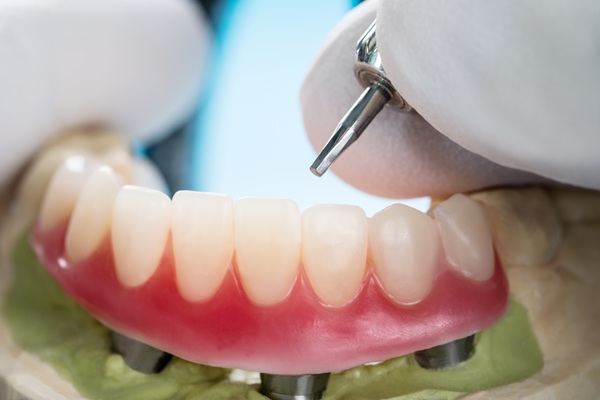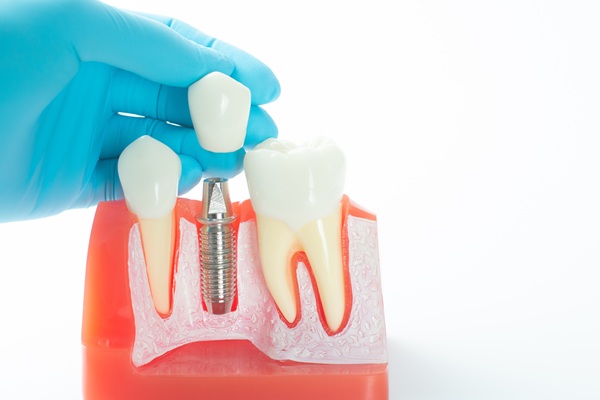Are You Put to Sleep for Dental Implants
 Missing or damaged teeth can impact people’s smiles and overall dental health, especially if the affected teeth cause pain or become infected, but dental implants can replace these teeth and eliminate certain oral health issues. Before patients seek out this procedure, it can be important to understand how anesthesia may be used to avoid any complications and ensure patients are as comfortable as possible during the implantation.
Missing or damaged teeth can impact people’s smiles and overall dental health, especially if the affected teeth cause pain or become infected, but dental implants can replace these teeth and eliminate certain oral health issues. Before patients seek out this procedure, it can be important to understand how anesthesia may be used to avoid any complications and ensure patients are as comfortable as possible during the implantation.
Understanding anesthesia
Patients who have concerns about experiencing pain during the implantation process can talk with the dental professional performing the procedure during the initial consultation. This can have several benefits, including:
- Reduction of anxiety
- A better understanding of the procedure
- Lowered fears regarding the implant
Depending on an individual's needs, patients may opt for anesthesia or the dental professional may recommend it based on the consultation interview. Once this is decided, patients can learn more about what specific type of anesthesia may be used during the procedure, as there are several different types available.
Local anesthesia
Some patients who opt for dental implants receive local anesthesia, which allows them to remain conscious and aware during the process. This type of anesthetic is injected into the area where the implants will go, numbing the gums and surrounding tissue. The amount of local agent usually depends on whether a tooth requires extraction before the implant can be put into place.
Dental patients who require implants usually do well with this type of anesthetic, even if more than one is required. Dental professionals typically gauge how numb the area is before the work starts, and while patients might experience tugging or other mild sensations, a local anesthetic is usually effective at blocking out the pain.
General anesthesia
If bone grafting is necessary during dental implant surgery, general anesthesia may be recommended. This type of anesthetic puts patients to sleep so they will have no memory of the procedure afterward. General anesthesia may also be employed for patients who are extremely anxious or frightened about having implants put in or who fear dental procedures in general, as this makes it simpler for all involved. The decision to use this option is typically up to the clinic and the limits of services the clinic can supply.
Twilight anesthesia
This type of anesthesia is sometimes known as conscious sedation, where patients remain awake while receiving the dental implants and can respond to questions yet are otherwise extremely relaxed. Twilight anesthesia can help patients with anxiety who may have trouble with general anesthesia or certain allergies that make the administration of such an agent risky. Not all clinics offer this type of sedation, but it may help patients to inquire about it during an initial consultation.
Conclusion
Understanding options for anesthesia during dental implantation can offer patients peace of mind during the planning portion of the procedure. With several different options available, dental professionals can help patients choose one that suits their physical and emotional needs.
Request an appointment or call Rafael E. Cordero, DDS PA at 561-763-9221 for an appointment in our Palm Beach Gardens office.
Recent Posts
Preparing for dental implant recovery is just as important as getting ready for the dental implants themselves. A good recovery sets the stage for successful implants that can last the rest of your life, with few additional changes or fixes. Here is what to expect after a dental implant procedure so you can adjust your…
It is common for people to be self-conscious about their smile, and many do not realize just how big of an impact that expert implant dentistry can have. Implants provide functional and aesthetic benefits that other restorations cannot achieve. The implant process is more in-depth than options like dentures, so the overall outcome is also…
Dental implants are permanent options for replacing missing teeth and repairing one's smile. Instead of contending with the annoying glue of dentures and the risk of them slipping out while talking, patients can enjoy dental devices that function like natural teeth by opting for dental implants. To determine if these are the right choices for…


